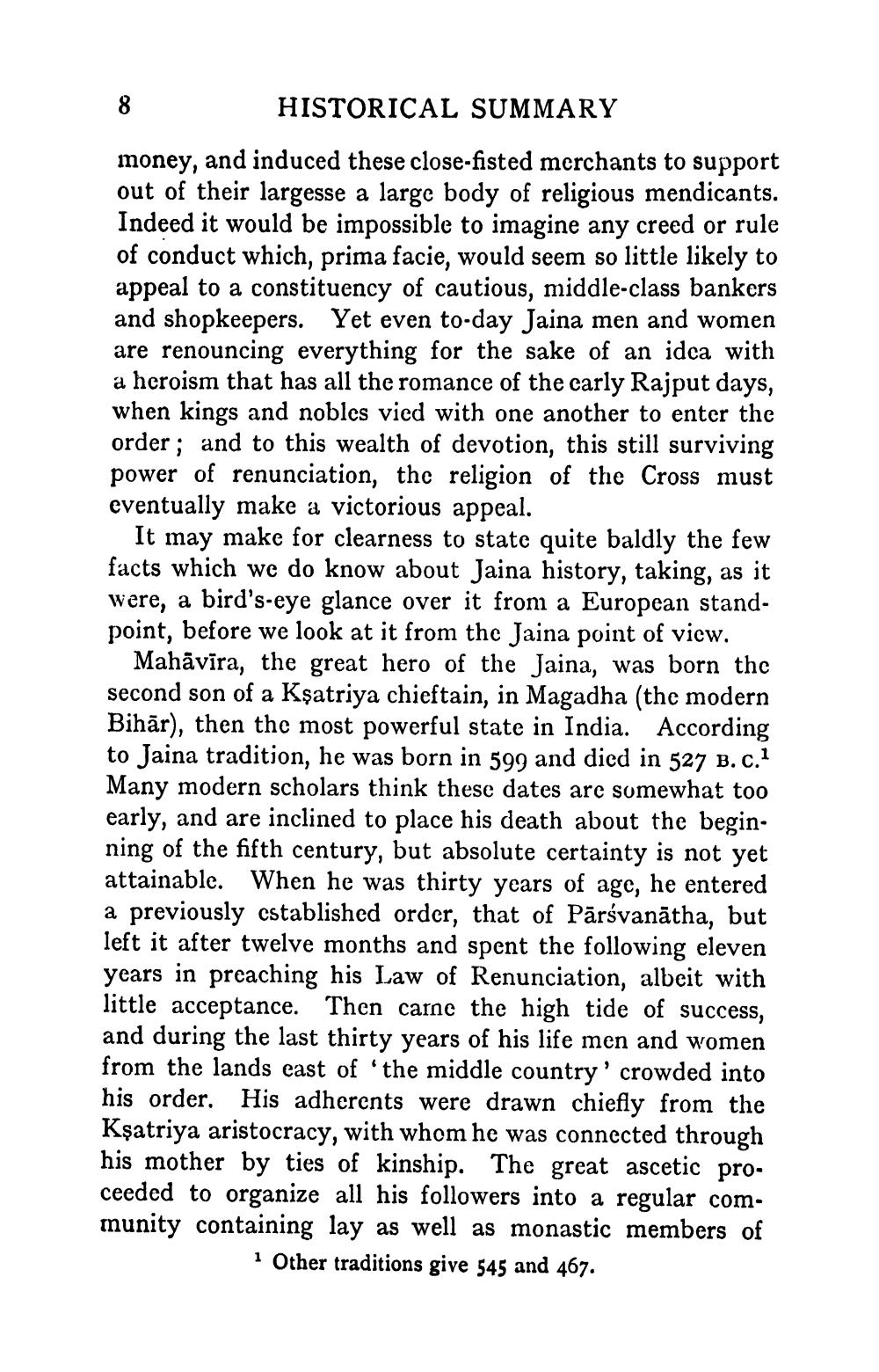________________
HISTORICAL SUMMARY
money, and induced these close-fisted merchants to support out of their largesse a large body of religious mendicants. Indeed it would be impossible to imagine any creed or rule of conduct which, prima facie, would seem so little likely to appeal to a constituency of cautious, middle-class bankers and shopkeepers. Yet even to-day Jaina men and women are renouncing everything for the sake of an idea with a heroism that has all the romance of the carly Rajput days, when kings and nobles vied with one another to enter the order; and to this wealth of devotion, this still surviving power of renunciation, the religion of the Cross must eventually make a victorious appeal.
It may make for clearness to state quite baldly the few facts which we do know about Jaina history, taking, as it were, a bird's-eye glance over it from a European standpoint, before we look at it from the Jaina point of view.
Mahāvīra, the great hero of the Jaina, was born the second son of a Kşatriya chieftain, in Magadha (the modern Bihār), then the most powerful state in India. According to Jaina tradition, he was born in 599 and died in 527 B. c. Many modern scholars think these dates are somewhat too early, and are inclined to place his death about the begin. ning of the fifth century, but absolute certainty is not yet attainable. When he was thirty years of age, he entered a previously cstablished order, that of Pārsvanātha, but left it after twelve months and spent the following eleven years in preaching his Law of Renunciation, albeit with little acceptance. Then carne the high tide of success, and during the last thirty years of his life men and women from the lands east of 'the middle country' crowded into his order. His adherents were drawn chiefly from the Kşatriya aristocracy, with whom he was connected through his mother by ties of kinship. The great ascetic proceeded to organize all his followers into a regular cominunity containing lay as well as monastic members of
1 Other traditions give 545 and 467.




